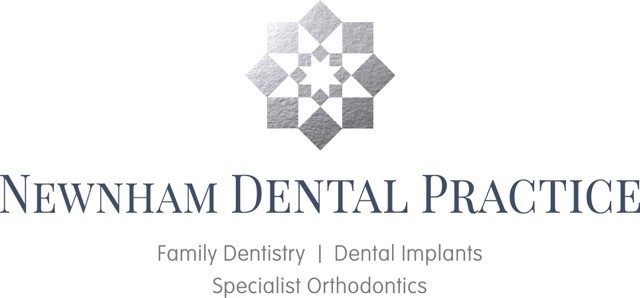Removable dentures are a time-tested and cost-effective option for replacing missing teeth. However, despite being one of the most commonly utilised tooth replacement options, they also have certain drawbacks. For example, denture wearers often complain that the dentures become loose often and require frequent repairs or replacements. At the same time, removable dentures get stained very quickly due to food accumulation.
So, if you are also unsatisfied with your loose dentures and looking for an option to enjoy a stronger bite, this blog is for you. Did you know that you could enjoy a beautiful smile and a strong bite with implant-supported dentures? So, continue reading to learn more about implant dentures and how to get rid of unaesthetic and loose dentures.
What Is The Best Way To Fix Loose Bottom Dentures?
Denture wearers often complain of loose lower dentures. This is because the jawbone tends to degrade faster in the lower jaw than in the upper one. So, it is really challenging for the dentist to ensure optimal retention in the lower dentures, especially if someone has been wearing dentures for a long time.
This issue can be fixed with various options. For example, your dentist may perform procedures such as bone grafting or alveolar bone ridge augmentation. These procedures restore the number of healthy bone tissues in the jaws, thereby improving the retention of the dentures. However, the ultimate solution for loose lower dentures is to replace them with implant-supported overdentures.
In implant-supported overdentures, the denture is supported by one or more dental implants instead of resting directly on the jawbone and soft tissues. Since dental implants remain firmly anchored within the jawbone, they offer superior retention and stability than conventional removable dentures.
How Come Dentures That Once Fit Can Suddenly Be Too Big?
A considerable drawback of removable dentures is that they exert constant pressure on the underlying jawbone when worn. Consequently, the jawbone continues to degrade over time. That is why dentures that were once fitting perfectly become loose over time. Due to this denture use-dependent changes in bone density and volume, removable dentures need to be frequently relined or repaired to continue to fit inside the mouth.
How To Care For Flexible Partial Dentures?
Flexible dentures need to be looked after carefully to prevent unnecessary dimensional changes and staining. For this, one must wash their dentures in lukewarm water before putting them back on after eating or drinking something. Furthermore, flexible dentures should be taken off while sleeping and immersed in water or a denture-cleaning solution. Failure to do so may cause them to warp and become unwearable.
What Are Implant Retained Dentures?
An implant retained denture is a removable denture that is supported by one or more implants. Conventional dentures rely on the oral soft tissues and the underlying jawbone for their retention and support. On the other hand, implant-retained dentures rest on dental implants firmly anchored within the jawbone and offer much better retention and chewing efficiency than traditional dentures.
Should I Get Dentures To Replace My Missing Tooth?
Removable dentures are among the commonly utilised options for replacing missing teeth. Whether you have lost a single, more than one, or all the teeth in your mouth, you can replace them with removable dentures. However, if you are looking for a lifelong solution for your missing that allows you to eat and speak without difficulty, you should consider implant-retained dentures. Although implant-retained dentures are more expensive, they last a lifetime. More importantly, they will also allow you to eat hard and sticky foods, which you cannot think of with traditional dentures.
How Do Bottom Dentures Stay In Place?
Removable dentures depend on the oral soft tissues and the contour of the jawbone for their retention. In the case of lower jaws, dentures are also held in place due to gravity. However, ensuring optimal retention in lower dentures is quite challenging for dentists. This is because the bone in the lower jaws degrades faster than the upper ones. Sometimes, dentists also use denture adhesives to improve the retention of the dentures. Furthermore, lower dentures that become loose over time can be relined to restore their retention.
How Often Should Dentures Be Replaced?
A denture should be replaced or repaired if it does not fit anymore or becomes cracked. Typically, removable dentures need to be replaced after 12 months. Your dentist will inspect your dentures at every checkup appointment and recommend replacing them if needed.
Can You Get Implants After Having Dentures For Years?
Yes, it is technically possible to get implants after wearing dentures for a long time. However, long-term denture wearing can lead to considerable degradation of the underlying bone tissues. In such cases, there is insufficient jawbone available to support the implant. To fix this issue, your dentist will perform a procedure called bone grafting. In this procedure, a bone graft obtained from one’s own body, animal, or an artificial source is placed over the jawbone to restore its density. Once the jawbone has achieved optimal density and strength, your dentist will proceed with implant placement.
Are you fed up with your old dentures and thinking of replacing them with implant-retained dentures in Newham, Ely, in Cambridge? If yes, Newham Dental should be your first choice. We offer all dental services in a comfortable and relaxing environment at affordable rates. So, what are you waiting for? Request an appointment with us today, and let us give you a dazzling smile you deserve.

